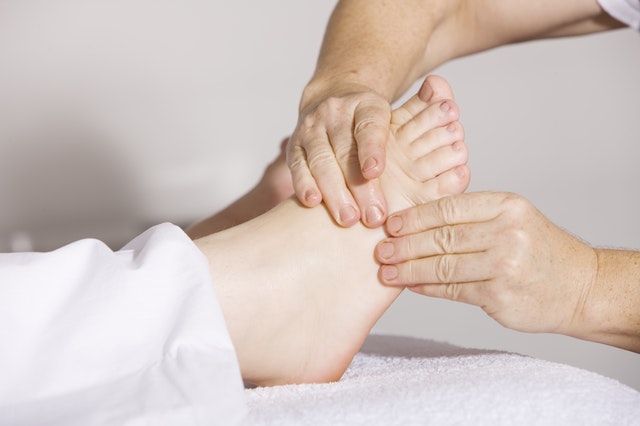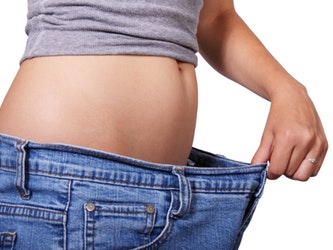
Image Source: Pexels
Sports massage is not a massage technique in itself, but an “approach” that involves the application of different massage techniques that aim to improve performance and recovery, reduce the risk of injury to promote healing and promote a state of well-being. If you’re looking to establish your career as a massage therapist, you should go for Dave Taylor Training. Dave Taylor provides intensive and practical massage training courses in major cities of the UK.
Massage increases flexibility and muscular elasticity; relax the muscles; eliminate muscle tension; eliminate pain due to knots and repetitive movements; obtain or regain range of motion; soften the muscles fasciae; relieve fatigue, reduce stress and improve performance; and reduce pain or inflammation caused by injuries. It is practiced before a competition/session to prepare the muscle and put the athlete in a more comfortable state. Or afterward, in order to recover more quickly by eliminating toxins accumulated in the muscles during the vascular effort. To make the best out of the massage, we have listed 7 things you need to remember before getting your massage:
1. Drink enough water after the appointment
The first reason to drink water after a massage, and perhaps the most important, is to help the body remove the muscles substances released during the session. Like a workout, muscles need to replenish fluids after a massage. You have to replace all that water by drinking more. It stimulates the blood circulation while extracting water, minerals and other substances from the muscle cells. Providing water to the body helps the elimination of these substances, otherwise, they could be accumulated between the muscle fibers and cause muscle pain after the treatment. (See also: Infographic: How to Pimp Up a Glass of Water)
2. Remember to Breathe
The breathing during the sports massage is very important because it allows the introduction of oxygen into the body and the elimination of carbon dioxide. If a muscle is a spasm, it loses its amplitude and hinders the movement in the affected area of the body. So, breathing properly oxygenates the body properly so that it can function properly. This also improves blood circulation, relaxes muscles and soothes the mind.
3. Avoid Eating Right Before
If you are going to take a massage, avoid eating abundantly or heavy and difficult to digest food. This could cause you to end up feeling tired and lethargic, quite the opposite of what you want. If you are going to eat something, eat at least an hour or two before the appointment. It is not advisable to go with your stomach too full, either should you drink alcohol or other stimulants.
4. It Shouldn’t Hurt
If you have a health problem or an injury, tell your masseuse before you start. If your injuries have improved or your health has changed from your last session, you should also comment. Telling your masseur in mid-session that the muscle he is working on in-depth has recently been injured is not the smartest thing. You could make a latent injury worse and, of course, it’s not what you’re looking for. So, again, be sure to let your therapist know if something hurts.
5. Speak Up
Your massage can only be successful if there is total confidence between the therapist and you. If you feel apprehensive, frustrated, how to relax? Speak to the practitioner! If the masseur is hurting you, if you are cold or if anything is bothering you, report it immediately. The therapists want you to come back, and so wish you to be as good as possible, but they cannot guess what your particular needs and wants are. It’s up to you to tell them.
6. Take shower before, not after
If you want your session to be unbeatable, take a hot shower before coming to the session. Coming relaxed after a shower, in addition to the obvious hygienic advantages, also helps the muscles reach the session more relaxed and with less tension. Also, it is better to avoid taking a shower within one hour after treatment. The massage promotes a better energy circulation. By showering immediately, you hinder the momentum. Know that some essential oils, like lavender, can take more than one hour to cross the cutaneous barrier. The rate of penetration may vary depending on the moisture of your skin, the ambient temperature and the vegetable oil used. A shower would cancel some of the benefits of your massage. If you do not like the greasy feeling, wipe dry with a towel.
7. Rest
Do not forget to take a few minutes to get back to the real world before getting off the stretcher. Also, after a good massage, take a little time to relax and do not rush. It is recommended to engage in peaceful activities. If you can, make sure you have nowhere to go and nothing urgent to do after your treatment.
As we work to get better gradually, our body needs time to rest and recharge. Take time for yourself to offer a full body massage and your body and mind will thank you.
About The Author:
Maria Brendel is a frequent traveler and freelance writer. She has finished her studies in the literature. She likes to write on travel, General and current affairs. She also works closely with B2C And B2B businesses providing blog writing and copywriting services. Her aim in life is to write a novel.




